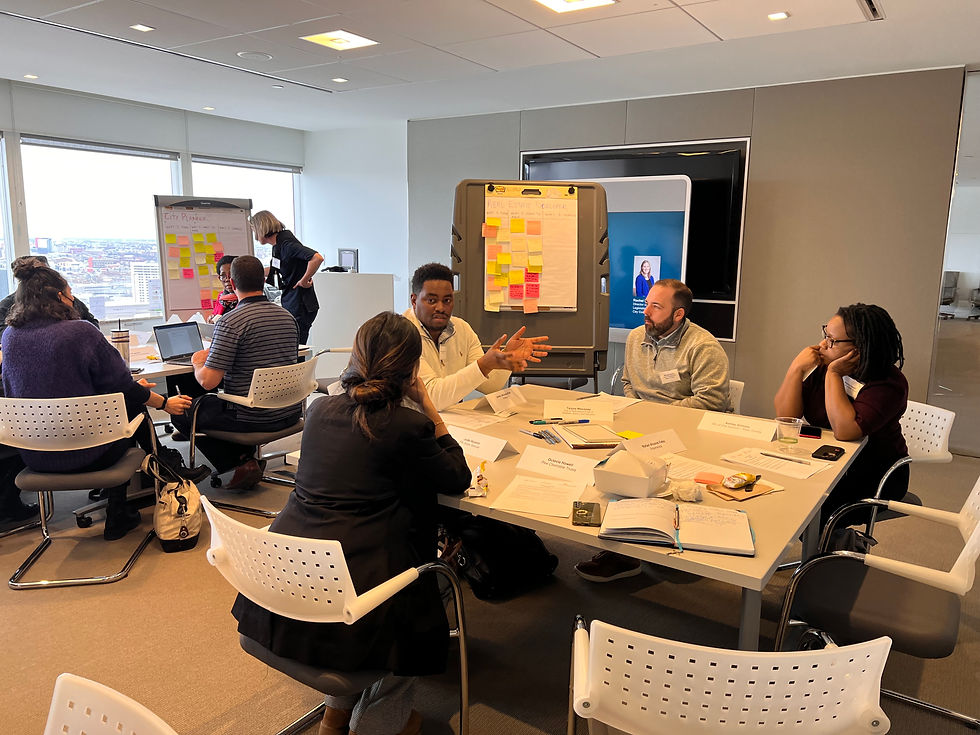Reflecting Before Action: The Essential Questions for Effective Advocacy
- Anavi Strategies
- Jul 11, 2024
- 3 min read
Non-profit organizations that provide direct services can often feel the need to engage in policy and advocacy efforts to broaden their impact by addressing systemic barriers. It is easy to be swept up in the urgency of various causes and campaigns.
Before an organization dedicates its valuable time and resources to any advocacy effort, we encourage organizations to engage in thorough reflection and strategic planning.

Advocacy also requires a unique set of skills and expertise that not every organization may possess. Through our work with multiple nonprofit partners, we have developed a decision-making tool that can guide direct service organizations through a series of essential questions to ensure their actions in the field of advocacy are attainable, impactful, and aligned with their core values.
Why Reflecting is Crucial
Advocacy can be a powerful driver of change, but it also demands significant investment in terms of time, effort, and resources. Without careful consideration, organizations risk pursuing initiatives that may not yield the desired outcomes or align with their mission.
Our decision-making tool includes a sequence of reflection questions that helps ensure organizations take informed action to yield the highest return on their investment.
The tool is designed to assess the following critical considerations when engaging in advocacy:
Alignment with Mission and Vision: Advocacy efforts should resonate with the core mission and vision of the organization. This alignment ensures that the cause is not only worth pursuing but also reflects the organization's fundamental principles and long-term goals.
Alignment with Strategic Objectives: Every advocacy effort should support the organization's strategic objectives. By assessing whether an issue aligns with these objectives, organizations can prioritize efforts that contribute to their broader goals.
Level of Impact: It's essential to consider the potential impact of the advocacy effort. Successful advocacy should meaningfully influence the organization’s programs, clients, or overall mission. Reflecting on this helps organizations choose efforts that will make a real difference.
Feasibility of Success: Reflecting on the likelihood of success is vital. Organizations must evaluate whether the advocacy effort has a realistic chance of achieving its goals. Understanding the feasibility helps in setting realistic expectations and making strategic decisions.
Organizational Capacity: Engaging in advocacy requires sufficient staff capacity and expertise. Organizations need to evaluate whether they have the resources to engage effectively and sustain their efforts over time.
Risks and Challenges: Advocacy efforts often come with risks, including legal, reputational, and relational challenges. Understanding these risks beforehand allows organizations to weigh the costs and benefits and make informed decisions.
Secondary benefits: Engaging in advocacy efforts can also build organizational capacity, or position the organization in a strategic way with their broader network of stakeholders. It’s important to identify what additional benefits there may be of engaging in advocacy, regardless of the outcome of the effort.
Stakeholder Support: The support of key internal and external stakeholders, including funders, partners, and decision-makers, is crucial for the success of any advocacy effort. Assessing whether these stakeholders back the policy position ensures that the organization is not working in isolation and can leverage external support effectively.
CLICK HERE to download our Advocacy Issue Decision-Making Tree.
By thoughtfully answering the questions laid out in the decision-making tree, organizations can better navigate the complex landscape of advocacy, ensuring that their efforts are strategic, impactful, and aligned with their core values.
Taking the time to reflect on these essential questions before embarking on advocacy efforts can save organizations from potential pitfalls and ensure that their actions are both meaningful and effective, and ultimately help drive positive change in their communities.
If you find this tool helpful, feel free to contact Anavi Strategies at info@anavistrategies.com for assistance with planning, facilitation, or implementation.






Comments